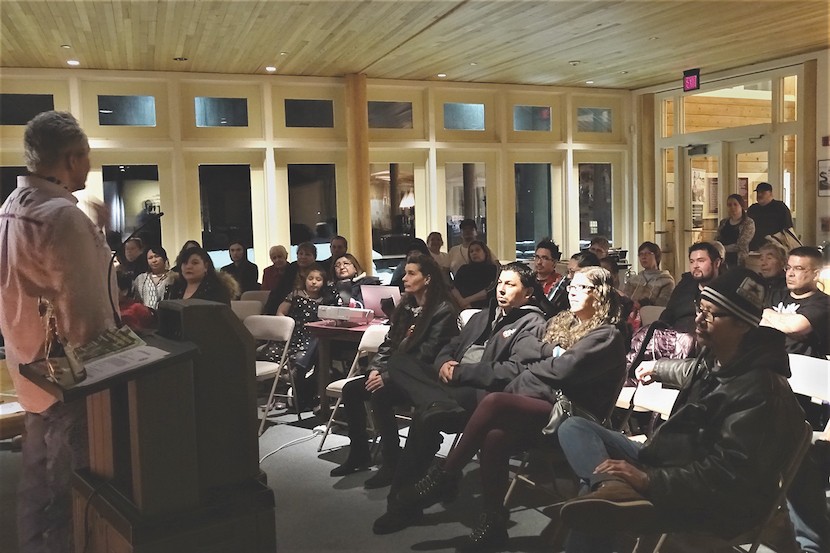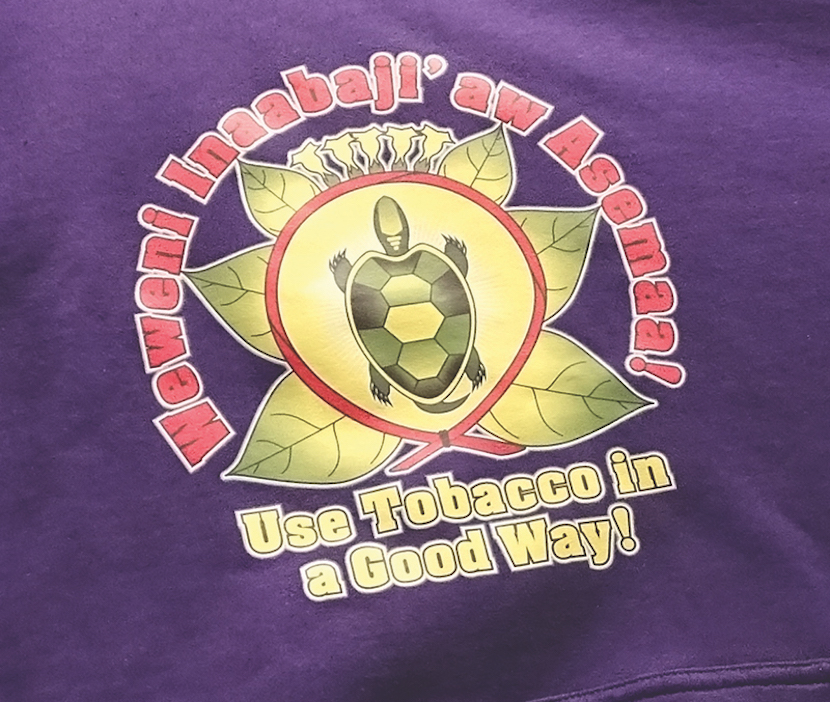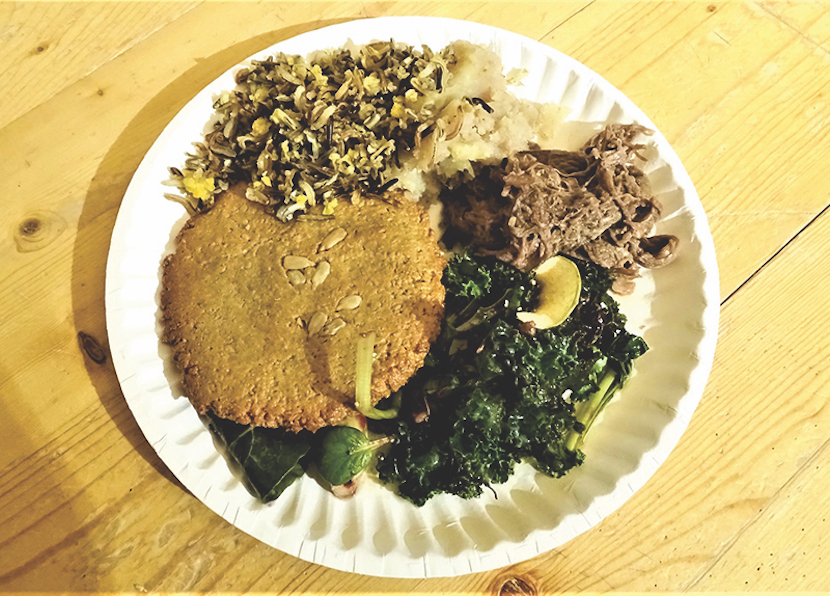
By Li Boyd Mille Lacs Band Member
The Weweni Inaabaji' aw Asemaa! Program chose the perfect cold February night to hold a winter storytelling event complemented by an excellent meal courtesy of The Sioux Chef catering. The event fell on one of the coldest nights of the season and served as a perfect reminder of why the Anishinaabe knew biboon, winter, to be story time. It was warm and cozy inside the Mille Lacs Indian Museum, and the event was so well-attended that museum staff set up extra tables as more and more people arrived.
Mille Lacs Band member Terry Kemper opened the evening with a greeting, prayer, and pipe ceremony. He then introduced drummers from Timber Trails, reminding people that more than anything the drums are the "heartbeat of our people. They are the heartbeat of Mother Earth." Timber Trails performed a song, and event organizer Mikayla Schaaf started out by saying how thankful she was that things turn out the way they are supposed to. She had originally lined up storytellers Bill Blackwell and Alex Kmett for the event, but both had to cancel at the last minute. Fortunately, Devery Fairbanks happened to be around and willing to share some stories, and Jim Northrup III made a surprise appearance as well.
Jim Northrup III comes from an extra strong line of storytellers, and he isn't afraid to speak up. Jim's stories aren't quite traditional. Jim is a water protector, on a mission to defend the sacred, and it's inevitable that all his stories circle back to the source. Jim talked about watching loons on the water as a boy. It took some observation and a chat with his grandpa for him to realize he was watching a loon marriage ceremony. That's the kind of magic that happens on the water. Jim's grandpa also told him, "You watch. One day we're gonna buy water." It was a foreign idea, once upon a time. Water used to fall from the sky, drinkable, and flow through the creeks, clean and clear. Contamination has already changed that enough that many people purchase drinking water in stores. Jim's grandpa knew the story before it came true. Jim says that we need to pay attention to the world around us and listen to the stories and wisdom passed down to us by our grandparents. One day, we might need all those things we learned from them, through the stories they told, to live in a good way once again.
Devery Fairbanks teaches at Red Lake Nation College but comes from White Earth Nation. He's been well-traveled throughout Minnesota all his life though and remembered going to Cash's Store on US Highway 169 just north of where Grand Casino Mille Lacs is today. In keeping with the theme of traveling between villages, Devery told the story of the brave girl who went to get medicine for her family and ended up leaving bloody tracks in the snow after losing her moccasins. In her tracks, the first ever moccasin flowers grew the following spring. These special flowers were called Lady Slippers by the state of Minnesota and declared the state flower. Devery also told Wenabozho stories, including why certain ducks have red eyes and flat backs, where red willow came from, and what happened when Wenabozho met a woodpecker.
Devery's last story was a perfect match for the event. In it, there were four brave young men who left their village to go out and find food and better things for their people. They encountered an old woman in a lodge, who gave each a bundle and told them not to open it until they were home. Each young man followed directions and made tea from the bundle they were given, but when nothing appeared to improve for their people, each young man died of a broken heart. They were buried, and the following year each had a different new gift for the people on their grave. The first had pine, so the people would always have wood; the second had white birch with chaga, for crafts and medicine; the third had flint so that the people could use it with steel to make fire whenever they needed it; and the fourth had asemaa, tobacco, so the people could ask for help and give thanks in a good way.
The story of the four brave young men was a good finish for the Weweni Inaabaji' aw Asemaa! event. The program name means Use Tobacco in a Good Way! It's run by the Department of Public Health. Staff member Mikayla Schaaf has made sure to keep the campaign highly visible by passing out hats with the program slogan on it and getting the message out in places like the Ne-Ia-Shing Clinic pharmacy on the prescription bags. Tobacco misuse and addiction is one of the biggest health problems in Indian Country, and this program is not afraid to take it head on.
For health bonus points, the team brought in catering from The Sioux Chef. Attendees were treated to a buffet-style feast of roast shredded buffalo, wild rice, sweet potatoes, wilted kale salad, and a sunflower seed soft-baked cookie. The chefs also had swamp tea available. It was the best meal on a paper plate in the region.
Raffle tickets given at the beginning of the event were gradually called the rest of the night, and winners walked away with birchbark frames, ledger art, and other special prizes. There was plenty of food, plenty of company, and time for a good visit on a Friday night. As Devery said following his Wenabozho stories, referring to some of the humorous details, "There will be times when your stomach's gonna growl, your neck will be bony, your wrists will be born; your nose will hurt; your butt will hurt!"
But things always look up in the end.

